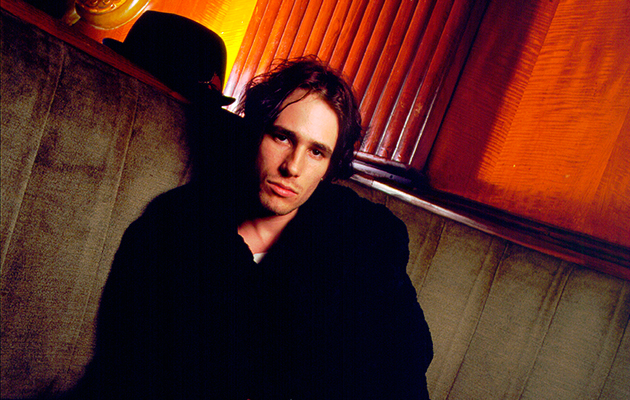February 1993. JEFF BUCKLEY, a hyperactive music junkie just finding his feet in the New York clubs, enters Shelter Island Studios and records 40 songs in three days. As the session’s highlights are finally released, Uncut hears the inside story of how a genius singer-songwriter learned his craft ...
STEVE BERKOWITZ (A&R executive at Columbia): We signed Jeff in the autumn of 1992 with the understanding that he would have complete control of his music. That was in the contract. He was capable of doing so much, the initial goal was to allow him the time and space to find out which Jeff Buckley he was going to be: are we going to wait for this flower to bloom, or are we going to cut it off? My job was to give him time to bloom.
MICHAEL TIGHE (friend; guitarist in Buckley’s live band, 1994-1996): I can remember Jeff holding this thick record contract in his hand on the night he was doing a show at [Brooklyn arts venue] PS1. He was a little scared, but it was also pretty exciting. He knew Columbia could get his music out there, but he also knew he was very green as far as songwriting and developing his sound went.
BERKOWITZ: By early ’93, the record company is asking, “So, what are you doing?” Not much! We hang around a lot. He comes to my house for Christmas, he mimes Warner Bros cartoons with my son. We go to a lot of gigs, play a lot of music, drink a lot of coffee. He’s playing every bump and hole in the wall in the city, but four, five, six months after he signed, there are no plans to record. So I suggest to Jeff, “Why don’t we go into this nice studio with this guy I know, relax for a couple of days, play everything you know, and at the end you can pick out three or four things that can be the beginnings of an idea for an album?” And he said, “OK, let’s do that.”
STEVE ADDABBO (producer and owner of Shelter Island Sound studios, New York): They needed a Table Of Contents session, just to put Jeff in the studio and see what he can do. I knew about his dad, but I didn’t know much about Jeff at that point. I still remember his intensity. He looked you straight in the eye. I’d done first records by Suzanne Vega and Shawn Colvin, and I knew the door he was going through. I didn’t want to impose myself, but I tried to make him comfortable. It’s not a huge studio. The recording area is maybe 20 feet by 16. The equipment went back to 1979 – it was vintage, tube mics and a lot of that old vibe.
BERKOWITZ: Steve had a beautiful studio, with good instruments and nice guitars. Jeff brought his Telecaster, I brought my Gibson ES-330, and he used one of Steve’s beautiful Guild acoustic guitars. There was no band. Nobody was going to tell him who his band was going to be.
ADDABBO: We set him up so he just could wander from instrument to instrument. He had an acoustic guitar station, an electric guitar station, a Wurlitzer electric piano, and we placed a mic in a harmonium, so he could go back and forth right away. He was using headphones most of the time, and we just let the tapes roll.
BERKOWITZ: We get to the studio on the first day, and Jeff’s very tight. We don’t discuss it, but it’s clear he’s going, “Oh shit, I’m recording for The Man, every note I sing is going on tape!” You think about that once or twice and you’re not as present as you should be. I could always tell when he was nervous, because I thought his face was going to crack.
ADDABBO: I think Jeff felt the pressure. “Number one, I’m following in my father’s footsteps. Number two, I’m on Columbia, and there’s a lot of expectation.” Jeff took it all very seriously and to heart. He was not a flake by any means; he was very conscientious and serious about his work, maybe to a fault. He knew he was taking some big first steps, and I felt he was very aware of this impending machine coming along. Berkowitz was very nurturing. He was very aware of the delicacy of the situation.
BERKOWITZ: If you could hear the rest of the tapes from day one, a lot of it would be really aggravating, because it’s me sitting next to Jeff playing pencils, tapping on cups, and singing along. He’s tight. His voice isn’t opened up. So we drink some coffee, we drink some beer. We get to four or five in the afternoon and his eyes start to close, his voice starts to accelerate, and another octave appears. I slip out of the room and behind the glass. I’ve done my job, which was to aid him to become free of the circumstances and just play what he was feeling. By the end of the afternoon of the first day it was loose, and he was happy to be there. It’s, “OK, this is good, see you tomorrow.”



